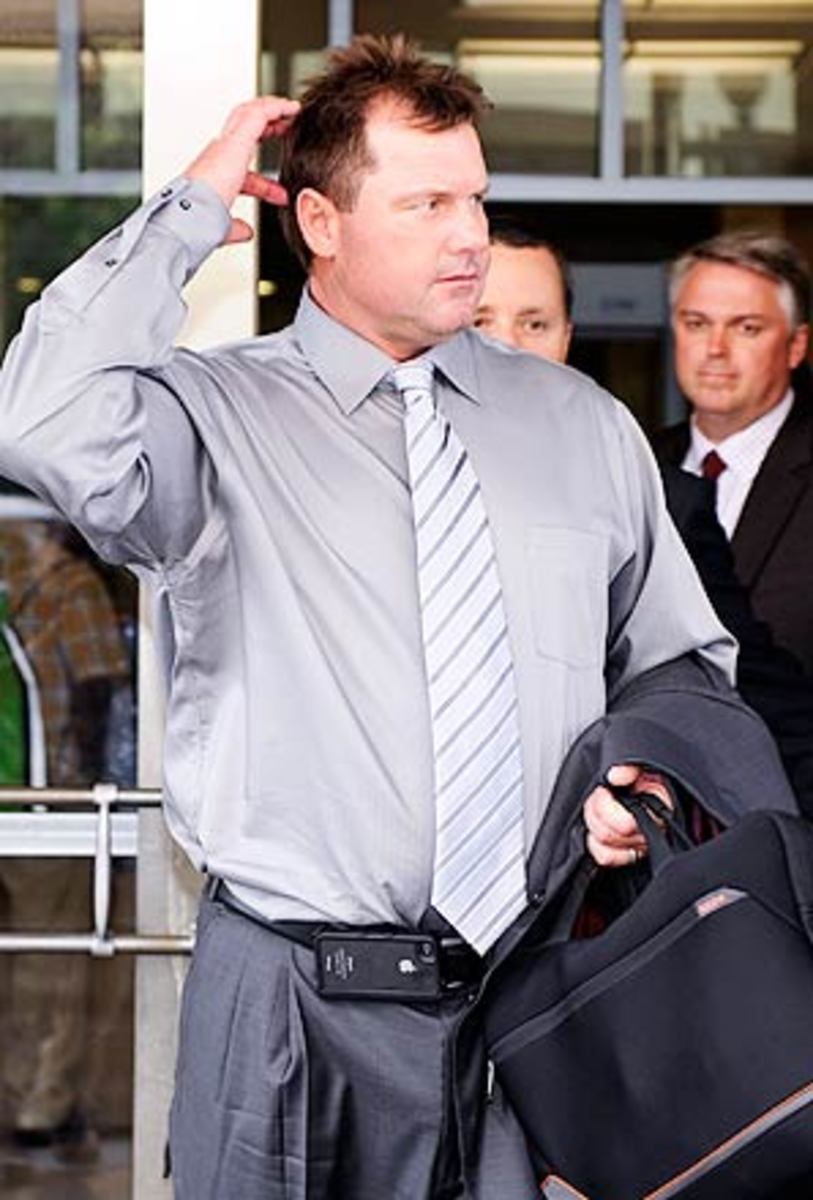Why government pursues athletes like Roger Clemens, Barry Bonds
For those of you depressed that two of our grandest leagues -- the NFL and the NBA -- are both temporarily out of business via lockout, cheer up, because there's other major news to divert you. Drugs are back, front and center; in fact, it's currently a veritable pharmaceutical hullabaloo.
First of all, it's enough that the Tour de France -- or Needles on Wheels, as it is more aptly known -- is simply rolling through the Gallic countryside again. Lance Armstrong, accused by yet another teammate, finds himself ever closer to government prosecution. Last year's Tour winner, Alberto Contador, is allowed to pedal for now, though he faces a hearing in three weeks on allegations from the World Anti-Doping Agency that he cheated his way to his 2010 victory.
Meanwhile, in baseball: Barry Bonds, convicted felon. Manny Ramirez, drug-induced retirement. And Wednesday, Roger Clemens went on trial in Washington for committing perjury to Congress for denying that he used drugs to sustain his fire-balling lifestyle on the mound until, incredibly, he was over the hill.
Also, in a Buffalo courtroom on July 6, Canadian healing specialist Dr. Anthony Galea pleaded guilty to charges that he distributed performance-enhancing drugs to various American athletes. He's treated the likes of Tiger Woods, Alex Rodriguez and Dara Torres, the ageless Olympic swimmer.
Yes, the drug war is terribly discouraging and seemingly never ending, but now impatient critics cry for the government to get out of the business of ferreting out athletic skullduggery. They argue that there are other important things for the government to deal with instead of wasting time and money on something frivolous like sports.
And, of course, yes, games are not consequential in an intrinsic sense. However, the fact is that in this world today, there are many trivial things taken very seriously by a lot of people -- sports primarily included. And thus, because sports in the aggregate is a substantial institution, the government is obliged to pay attention.
Perhaps one of the reasons the government is forced to pay attention is because of the way sports affect children. The goal of sports is victory, but the essence is fairness. What's the first question a kid asks entering a game? What are the rules?
If we don't accept playing by the rules in sport, where else do we lay down that marker? That's what's serious about sports. And why, although we are weary of all the doping distractions, it is worth the while of governments to go after athletes -- especially the celebrities -- who might have cheated their games and cheated what a very visual institution in our society teaches us. Yes, it's time and money, but, yes, it's only fair.






